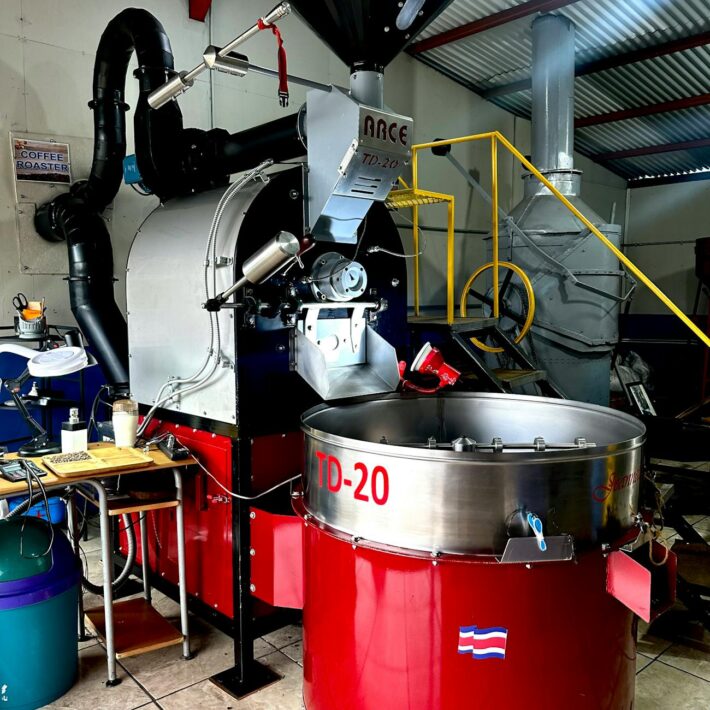Grain Processing Business Ideas to Start in 2024

Contents
Grain Processing Business Ideas to Start in 2024
The grain processing industry holds a pivotal position in agriculture, serving vital roles like food production, animal feed, and more. As a small business owner, exploring this sector offers numerous opportunities to tap into an ever-growing market. In 2024, diversifying into grain processing not only reflects a response to consumer trends but also presents a platform for entrepreneurial innovation and sustainability. The following sections detail exciting grain processing business ideas that can shape your entrepreneurial journey this year.
Overview of Grain Processing Businesses
Grain processing refers to the various methods employed to transform raw grains into consumer-ready products. This industry is an essential part of the agricultural sector, contributing significantly to the economy. From grain milling to innovative food products, the processing sector enhances the value of grains, creating more opportunities for local economies and food security. Whether you aim to establish a traditional milling operation or venture into niche markets, the potential for success is vast.
Grain Processing Business Ideas
Flour Milling
Flour milling is perhaps the most visible grain processing business. It involves grinding wheat into flour, a staple ingredient in many kitchens. Starting a flour mill requires a grinding machine and storage facilities for raw wheat. With the ongoing demand for various flour types—whole wheat, gluten-free, and specialty flours—this business is poised for growth.

Photo by Mehmet Turgut Kirkgoz
Rice Processing
Rice is a staple food for over half of the world’s population. The rice milling process includes husking, whitening, and polishing to remove the bran. To enter this market, you’ll need appropriate milling equipment and a reliable source of rice. With growing health awareness, brown rice and specialty varieties are trending, creating additional market segments.
Corn Wet Milling
Corn wet milling is a unique process that extracts useful product-derived starch, syrup, and oil. This method includes soaking corn in water to separate specific components. As consumers shift towards healthier and more natural products, demand for corn derivatives, like sweeteners and starches, is on the rise, marking a profitable avenue for business.
Oat Processing
Processing oats involves several steps, from roasting to cut or rolled oats. Oats are increasingly popular for their health benefits, becoming essential in breakfast foods and snacks like granola. Starting an oat processing business not only meets market demand but also promotes healthier lifestyle choices.
Barley Malting
Malting barley is crucial for beer production—a market worth exploring, given the craft beer revolution. The malting process enhances enzymes that aid in brewing. By setting up a malting facility, you could supply local breweries, combining passion with profitability in this fun niche market.
Pasta Production
If you’re inclined toward culinary arts, pasta production could be your niche. The process includes mixing flour with water to form dough, which is then shaped and dried. The quest for organic and specialty pastas opens avenues for innovation and tailored marketing.
Cereal Manufacturing
Cereal production is an expanding arena where health consciousness plays a crucial role. You can create ready-to-eat cereals with diverse grains, incorporating unique flavors and nutritional benefits. Given the busy lifestyles of many families, this business can cater well to those seeking quick, nutritional breakfast options.
Grain Storage Solutions
Storing grains properly is vital for maintaining quality and preventing spoilage. Providing storage solutions such as silos or temperature-controlled environments can be a supplementary business idea. Farmers and grain suppliers require reliable storage systems, presenting opportunities for collaboration.
Animal Feed Production
The demand for processed grains in animal feed is robust as meat consumption continues to rise. Producing high-quality animal feed from grains like corn and barley ensures less waste and efficient cultivation. Small business owners can tailor feed blends for specific livestock needs.
Snack Food Processing
Following the trend of health-focused snacks, processing grains into snack foods—such as granola bars and crackers—offers profitability. Creative flavor and texture combinations can set your business apart in the snack industry.
Gluten-Free Products
With a heightened awareness of celiac disease and gluten sensitivity, the market for gluten-free products is booming. Entrepreneurs could focus on developing gluten-free blends derived from grains like rice and corn, appealing to a larger audience with dietary restrictions.
Organic Grain Farming
Entering the organic grain farming market is an eco-friendly way to engage consumers who prioritize sustainability. Building an authentic brand identity and a loyal customer base can elevate this business. Emphasizing the fruits of nature without chemicals has immense market potential.
Sustainable Grain Practices
Eco-friendly processing methods can enhance your brand image. Adopting practices such as minimal waste and energy efficiency can resonate with environmentally conscious consumers while complying with regulations, ultimately improving marketability.
Exporting Grains
Exploring international markets can diversify your business offerings. Researching local regulations, identifying target markets, and securing necessary certifications and compliance are crucial elements. Countries with food shortages are often the best targets for exporting processed grains.
Grain-Based Beverages
Creating beverages from grains, such as craft beers or whole grain teas, presents endless creativity. The beverage landscape is evolving with consumer preferences shifting toward health-oriented drinks. This sector combines traditional processing with novel flavors.
Starting Your Grain Processing Business
Starting a grain processing business requires careful planning and execution. Here are actionable steps to help you on your journey.
Business Planning
Crafting a robust business plan is essential. Outline your market research, target audience, on how you’ll leverage distinctiveness in the grain processing industry. A well-defined strategy will give clarity and drive your business forward.
Getting Financing
Seek various funding options: personal savings, loans, or investors. Demonstrating a solid business plan can attract potential investors and secure necessary financing to kickstart your venture.
Regulatory Considerations
Understand food safety regulations and obtain necessary permits. Ensure you comply with health standards to build a reputable brand that consumers trust. The food industry often holds strict guidelines, so due diligence is imperative.
Marketing Your Business
Use a mix of online and offline strategies to create brand awareness. Develop compelling marketing campaigns that showcase your unique selling points. Your branding should capture your business identity and resonate with your target audience.
Conclusion
Grain processing presents various business opportunities in 2024 for small business owners. Whether you're fascinated by milling, gluten-free products, or sustainable practices, the possibilities are endless. Engaging in grain processing can not only be profitable but also fulfilling as you contribute to health and wellness in your community. Explore these ideas, do your research, and dive into the grain processing journey!
Resources for Further Learning
- Business Ideas to Inspire Your Entrepreneurial Spirit
- Create the Perfect Logo for Your Grain Business
- Explore Successful Brand Strategies
- Learn About the Best Personal Branding Practices
Incorporating thoughtful strategies and adhering to best practices can lead to your grain processing venture's success. Embrace innovation while reinforcing fundamental operations for a rewarding entrepreneurial experience!

As our Chief SEO & Branding Strategist, Robert Ellison is a digital marketing visionary with over 25 years of experience transforming brands through smart, data-driven SEO and impactful storytelling. Known for his expertise in aligning technical SEO with authentic brand narratives, he leads our team in creating strategies that boost search rankings while building strong, sustainable brand identities. A trusted advisor and frequent industry speaker, Robert combines deep technical knowledge with creative insight, helping our clients not only reach the top of search results but also genuinely connect with their audiences.








